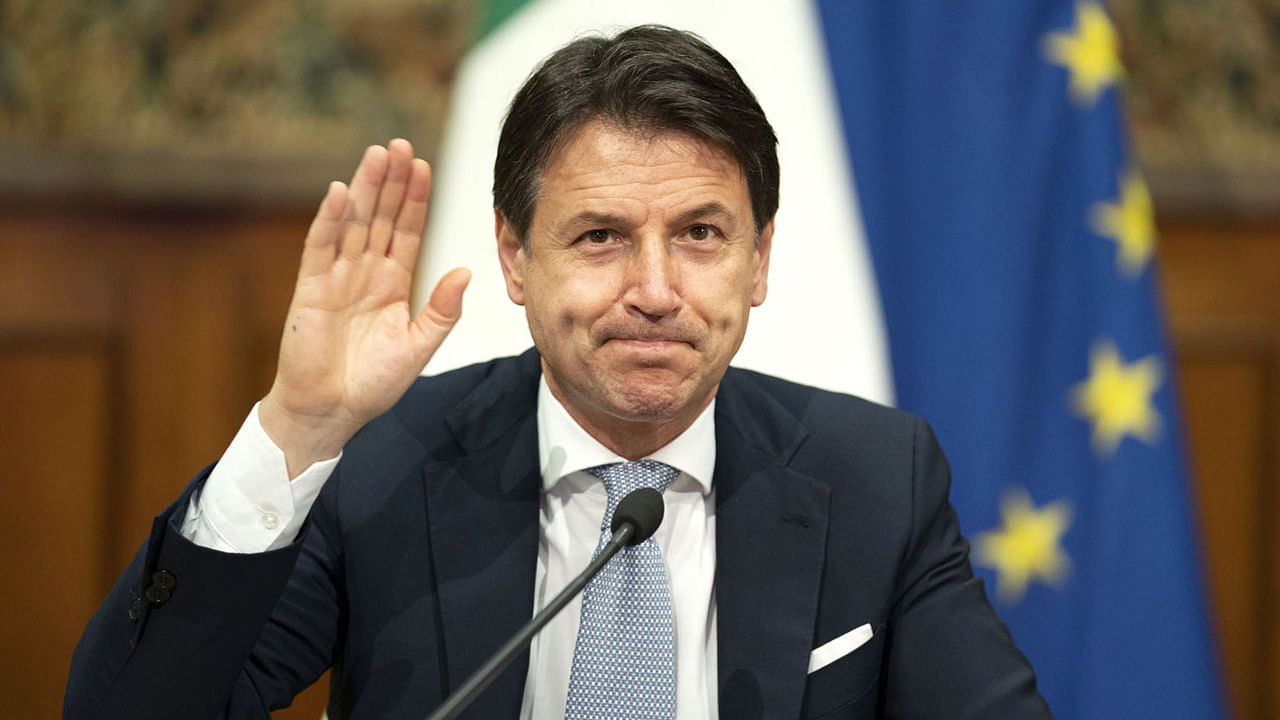
Italian Prime Minister Giuseppe Conte took office with no political experience but has proved remarkably adept at staying in power -- at least so far.
After weeks of turmoil in the ruling coalition, Conte resigned on Tuesday to seek a fresh mandate from President Sergio Mattarella to form a new government.
It would be the third in a row for the once obscure law professor, who was first appointed at the helm of an unashamedly populist, eurosceptic government in the wake of the 2018 general election.
When that collapsed, he cobbled together a coalition on the centre-left, which held until former premier Matteo Renzi withdrew his Italia Viva party on January 13.
Conte is now seeking to gather lawmakers with a centrist, pro-European view to see Italy through the coronavirus pandemic, which has plunged the economy into recession and claimed more than 85,000 lives.
"Conte has certainly proved to be a chameleon," Lorenzo Castellani, political professor at Rome's Luiss university, told AFP.
"He has been extremely flexible. So far, being without his own party has been an advantage for him, but it could become a weakness if the political parties become more aggressive."
Conte has never himself been elected and was dubbed "Mr Nobody" when in 2018, he was appointed to lead a fractious coalition between the initially anti-establishment Five Star Movement (M5S) and Matteo Salvini's far-right League.
He presented himself as "the people's advocate" and said he was happy to lead a populist government if that meant listening to people's needs and working "to remove old privileges and entrenched powers".
When he took that message to the European Parliament, liberal lawmaker and former Belgian premier Guy Verhofstadt lampooned him as a "puppet" of his deputy premiers: Salvini and M5S leader Luigi Di Maio.
But he turned the tables on Salvini when, buoyed by a bumper crop of European election results, the League leader quit the government in August 2019 in a bid to force new polls.
Conte himself resigned, lashing out at Salvini for pursuing his own interests, and formed a new coalition between M5S and the centre-left Democratic Party (PD), two former sworn enemies.
In the first few terrifying months of the pandemic, the seemingly unflappable, dapper Conte appeared to many Italians as a safe pair of hands.
Italy was the first European Union country to be hit badly by the virus, and Conte leveraged the crisis to plead for more solidarity from other member states.
He eventually secured for Italy the largest slice of a 750 billion euro ($910 billion) EU recovery fund, worth more than 200 billion euros.
Conte's approval rating surged to 65 per cent, according to an Ipsos survey for the Corriere della Sera newspaper.
When news organisation Politico named Conte its "Doer Number 1" of 2020, it sparked mockery and anger on social media.
Renzi has accused the premier of lacking vision on how to spend the EU windfall, and being mostly interested in saving his skin.
"You have changed three (governing) majorities in three years just to stay where you are," he told Conte last week.
Critics also claim Conte dithered over key decisions and failed to use last summer's lull in infection rates to prepare for an even deadlier second wave.
In Bergamo, one of the Italian cities worst-hit by the virus, relatives of victims are suing Conte and other key government figures, citing a litany of official failures in the early stages of the epidemic.
Born in 1964 in the tiny village of Volturara Appula in the southern region of Puglia, Conte was a law lecturer at the University of Florence.
A devout Catholic and former leftist turned M5S supporter, he also taught at Rome's Luiss University -- although he has been accused of inflating parts of his CV.
Of his own politics, he once said: "I used to vote left. Today, I think that the ideologies of the 20th century are no longer adequate."